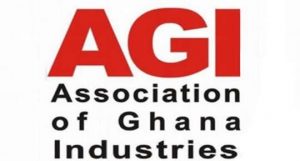Mr Sampson Akligoh, Acting Director, Financial Sector Division, Ministry of Finance, says the ownership, governance and operational structures have been carefully designed to ensure that Development Bank, Ghana (DBG) is managed professionally.
He said this would ensure that the DBG successfully carried out its economic transformational mandate while remaining financially sustainable.
Mr Akligoh was speaking at a Development Dialogue organized by institute of Statistical, Social and Economic Research (ISSER) on the topic: “National Development Banks and Sustainable Financing in Ghana” in Accra.
He said the governance structure would enable DBG to pursue its mandate in a professional manner, fulfilling its development mandate while maintaining financial viability and giving comfort to shareholders and financiers of the bank.
He said the robust design features of DBG would be reinforced by the new Development Finance Institutions Act 2020 (1032), which empowered the Bank of Ghana to exercise strong regulatory and supervisory oversight.
He said the German Government through its development bank, (KfW), was investing in DBG and providing generous Technical Assistance for the set-up and initial running of DBG.
The KfW is one of the biggest, most successful, and most respected national development banks in the world, having been awarded the World’s Safest Bank 2020 and for the last 11 consecutive years.
“We are aiming to establish DBG by end-2021 with an initial capitalization of around US$250million from the Government of Ghana (US$200million has been paid as at May 2021), while the World Bank also plans to support with US$250million,” he said.
The Acting Director said KfW also planned to support with EUR 46. 5 million (Tier 2 capital), plus Technical Assistance (EUR 3 million) together with French government also planning through Agence France de Development with initial support through partnership on Guarantees and African Development Bank supporting with a US$40million grant.
He said in addition to the association with KfW, the design of DBG had benefitted from deep and extensive study of development bank experiences worldwide through the World Bank, European Investment Bank, Agence France de Development (AFD), and the African Development Bank.
Mr Akligoh said DBG, as a wholesale and non-deposit taking bank required no branch network and a very small staff.
It will therefore be very costly – financially and in terms of closure of branches and employment loss to try to convert adb or NIB into a viable modern development bank.
He said the advantage of the greenfield approach was that one got to start from a clean slate, with no legacy financial, governance and other issues and “this allows the country to focus on the future and move straight into setting up DBG equipped with modern and sound design principles.”
“The Governance structure of DBG ensures the independence of the Board and Management to run professionally to effectively pursue its development mandate while remaining financially sustainable,” he said.
Mr Akligoh said government, based on the recommendation of a Task Force of experts, had decided to establish DBG to help address the market failures in the Ghanaian credit markets, and thereby increase the availability of medium and long-term finance to enable Ghanaian businesses to facilitate economic transformation and job creation.
The primary Focus Areas of the Bank will be Agribusiness; with a focus on off-farm value-chain activities, Manufacturing, ICT, software, and allied services, including Business-Process Outsourcing, and Tourism and Homeownership Mortgage Finance.
Professor Joshua Abor, University of Ghana Business School, said the National Development Bank would create jobs to absorb groups from the labour market and serve as critical tool in supporting proactive growth strategies.
He said it would also mobilize private sector finance to fill the funding gap in order to achieve the sustainable development goals.
He said the Development Banks complement the efforts of the multinational, regional and bilateral development finance institutions in financing the gap by providing long-term finance to improve sectors that spur growth and development.







